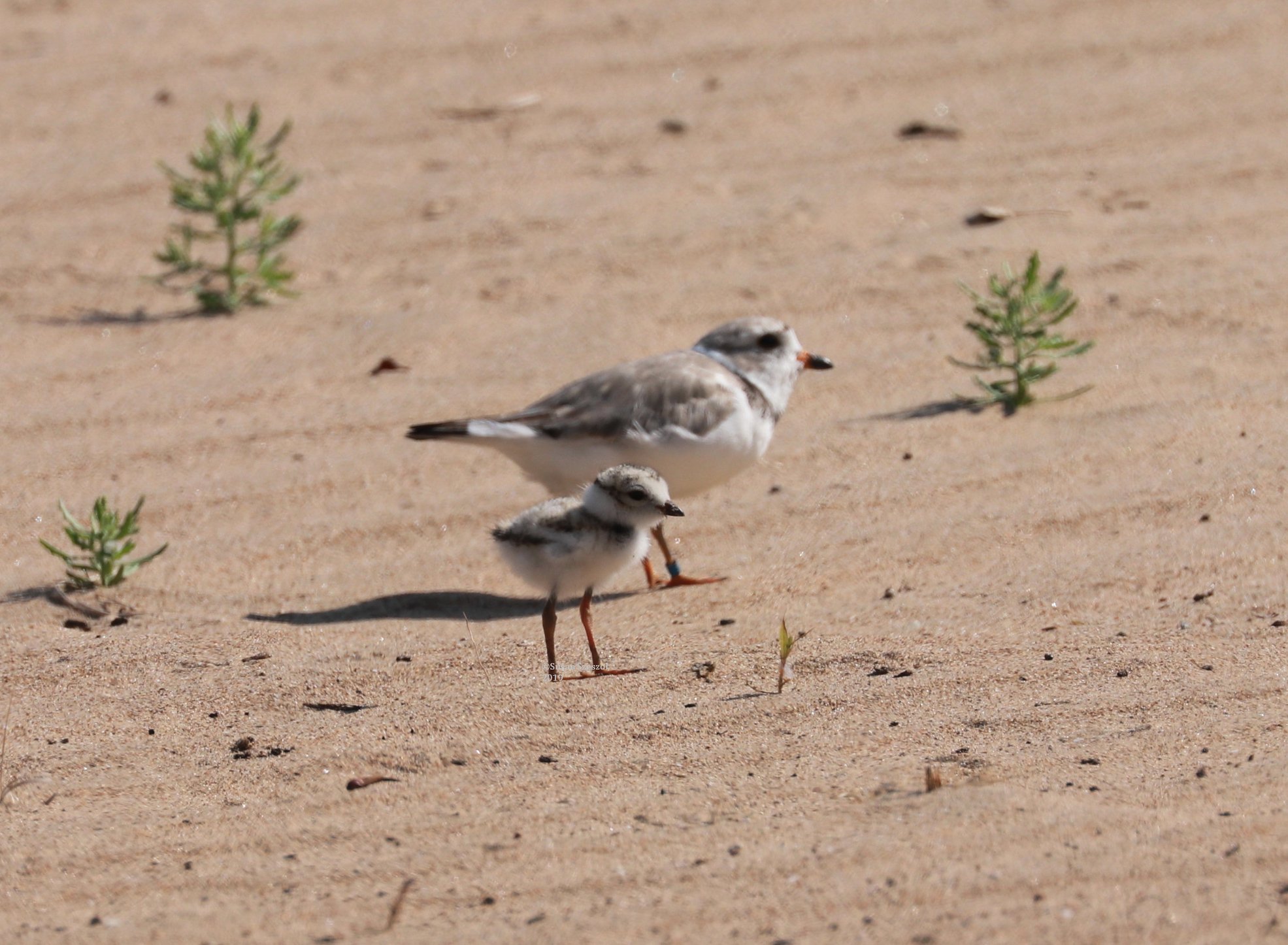By Christine Williamson, Lands Wildlife Habitat Team Chair
The safety of the now-famous Montrose Beach piping plovers has been partially secured thanks to the successful efforts of conservation groups to stop a huge concert planned for late August on the beach.
Sierra Club and many allies mounted a campaign of opposition to the Mamby on the Beach concert, including a petition signed by more than 6,000 people demanding that the Chicago Park District deny Jam Productions a permit to hold the mega-concert on Montrose Beach on August 23–24. This gigantic concert would have attracted thousands of people, and the noise and activity would have had very negative impacts on the piping plover family and other wildlife resident at Montrose Beach and Nature Preserve.
Despite widespread, vocal opposition across Chicago to the concert, Park District commissioners approved the permit. This very disappointing decision speaks volumes about the commissioners’ lack of interest and support for nature in city parks. Yet Jam Productions cancelled Mamby anyway, attributing the decision to the presence of the plovers and the fact that Montrose Beach was too flooded to safely hold the concert (many thanks to Mother Nature for producing tons of rain that raised Lake Michigan water levels to record highs which swamped the beach).
Please be VERY proud of yourself if you took action and helped to protect a family of the world’s most adorable and highly endangered piping plovers! Chicago residents, especially Chicago Sierrans, love these plovers! Chicago Group’s Facebook page has never had so much traffic and engagement on any subject. Our members realize how precious our piping plovers are as part of a population of less than 175 in the Great Lakes region.

But piping plover parents Monty and Rose have a difficult job: laying, incubating, hatching, rearing, feeding, and protecting tiny chicks on a busy urban beach with high levels of activity from humans, dogs, and predators such as gulls, foxes, raccoons, and skunks. Their first clutch of four eggs was collected by the U.S. Fish and Wildlife Service for captive rearing because the nest site flooded. None of those eggs proved viable and no chicks hatched.
Of the next four eggs Rose laid, one failed and was abandoned, and three chicks hatched. On July 28, one chick appeared to be ill and was captured by monitors and taken to Lincoln Park Zoo for rehabilitation. The poor chick could not be saved and died the next day. The two remaining chicks and their father likely will remain at Montrose Beach until mid to late August, when they will migrate south. The female plover migrated south on July 26.
More than 150 volunteers will continue to monitor the plovers during daylight hours. They have their hands full shooing predators, especially gulls, out of the protective fenced-in area around the plover nest site. In the natural food chain, piping plover chicks are close to the bottom, and with a species so imperiled, human intervention is needed to keep them out of the mouths of predators.
Do yourself a favor and visit Montrose Beach. Take the sidewalk east from the beach house toward the lake. You’ll find a group of people along the stone wall who obviously are birdwatchers (look for binoculars). Ask a plover monitor to show you one of the birds. You will be looking at one of the rarest, most beautiful birds in the world. The sight is guaranteed to send a chill up your spine no matter how hot the day.
Photo by Susan Szeszol